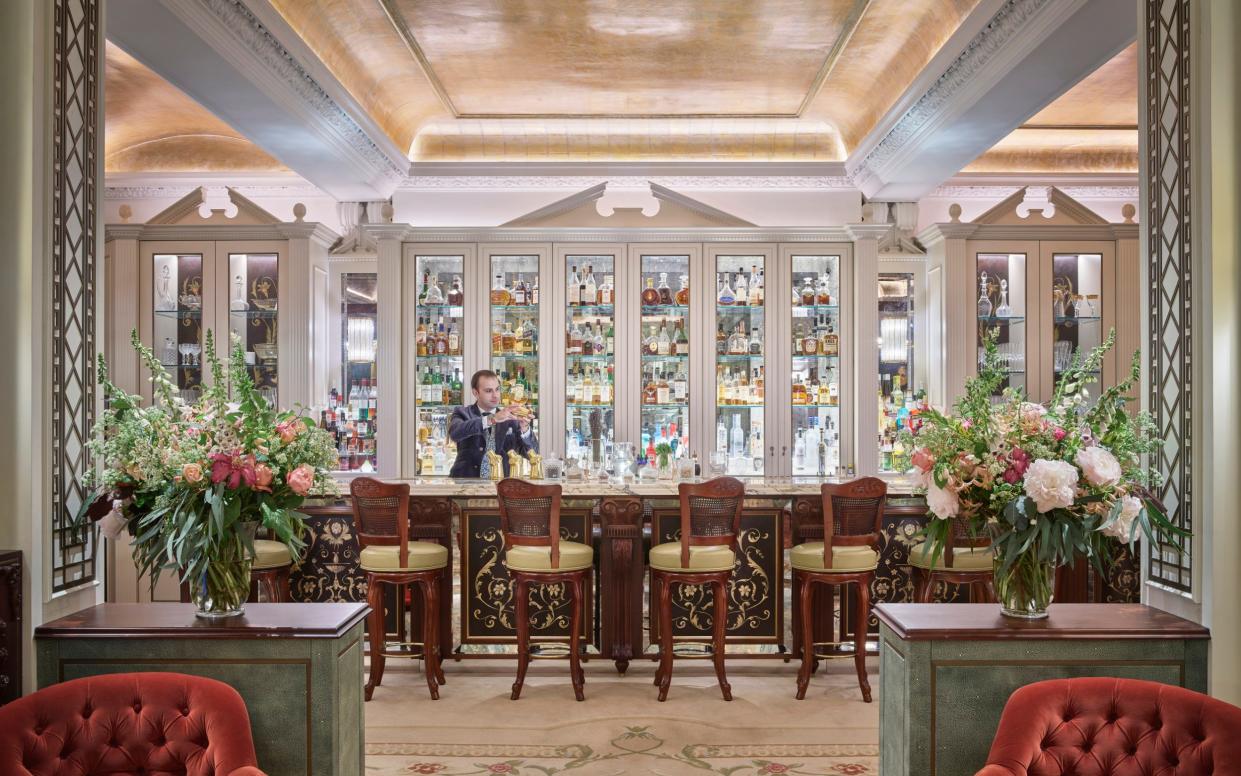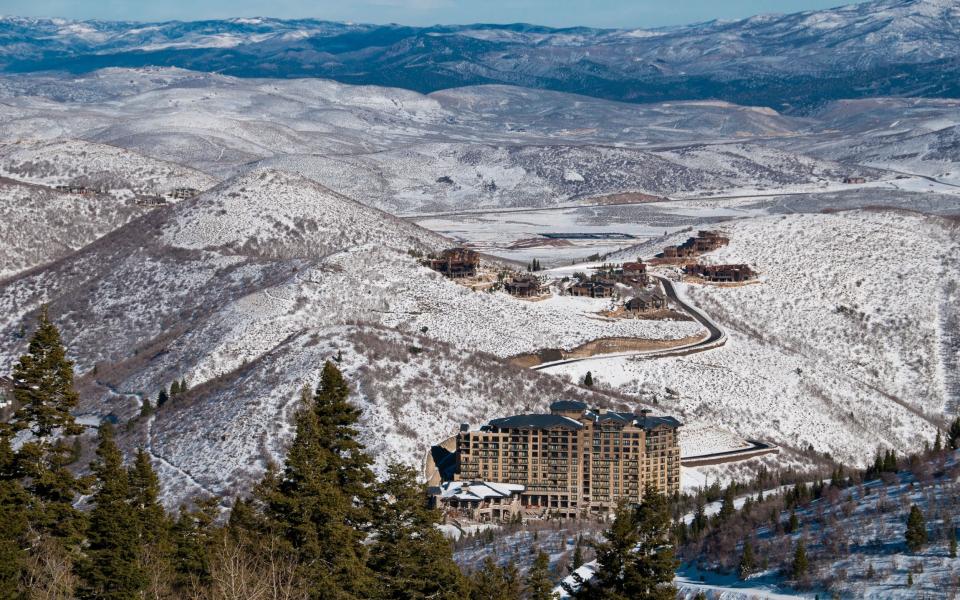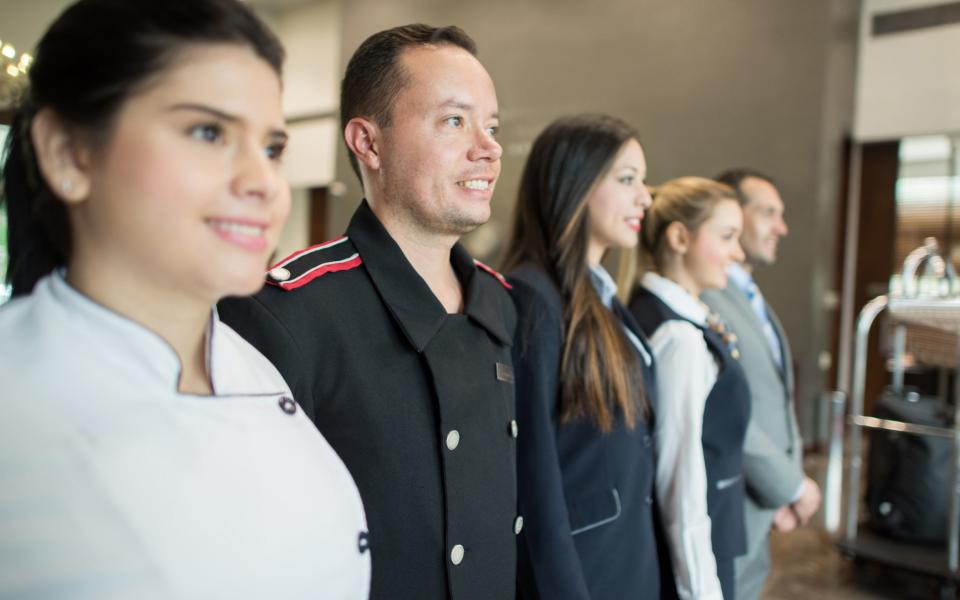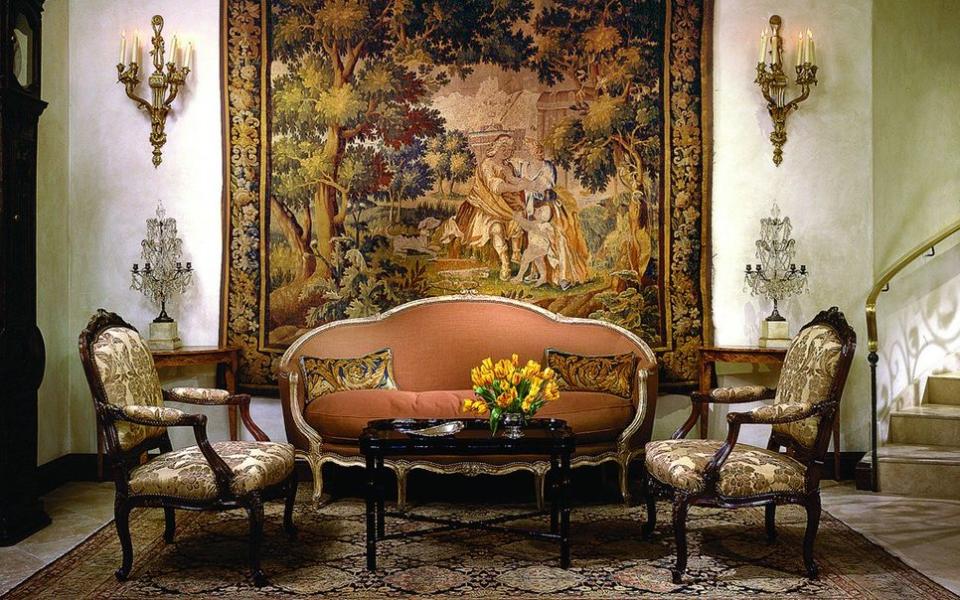How American hotels are failing their customers – and why Europe has got it right

Visiting America is delightful; wide open spaces, spectacular landscapes, enthralling cities. Less enthralling, however, are the country’s hotels, which, according to many European travellers, miss the mark. Between minimalist service (kiosk check-in is cool), blaring music in public spaces (ambience!), an eye-rolling amount of “smart tech” (so edgy), and could-be-anywhere interiors (everyone will feel at home), American hotels – even those billed as “luxury” – can feel like an overnight in a trendy fast fashion shop, where hype is the focus, not quality.
Of course, there are outliers; smaller upscale chains and independent boutique properties. But, compared with Europe, the level of hospitality at a typical four-star or five-star hotel in America is somewhat lacking. And you are still expected to add a 20 per cent tip to meals and other services rendered.
Even celebrities have a hard time getting the service they need. “Most American corporate hotels charge as much as they can get away with, while providing the bare minimum of what they can get away with,” John Cleese recently posted on X, formerly Twitter. “They are large, and not well managed, and most of their staff have not been properly trained.”
But what is it that American hotels are getting so wrong?
The chains gang
Much of this problem is rooted in the fact that America is dominated by publicly held chain hotels, such as Hilton, Hyatt, Marriott, and their many offspring. Yet, unbeknownst to many customers, most of these hotels are owned by a private entity and not by the brand that will appear on your credit card bill.
With profits being split between shareholders and owners, it’s fairly obvious that the priority is scaling the business, and more often than not, that attractive-looking hotel online will deliver a status quo encounter that won’t include breakfast or the thoughtful details that make for a meaningful experience.
Take The Ritz-Carlton (Ritz Hotels in America have no relationship to the European hotels built by Cesar Ritz; they are under Marriott’s brand umbrella) on Key Biscayne near Miami Beach, where housekeeping seems optional, morning coffee (not complimentary) lines snake around the corner and a live DJ next to the beach obstructs the tranquility promised online.

Then there is the St Regis in Deer Valley, a ski resort in Utah also managed by Marriott, with branding pulled heavily from a supposed connection to the Gilded Age. But this very beige property with large but ho-hum rooms, forgettable amenities and an ill-equipped concierge (“can you try the app?”) has nothing in common with the spectacular Beaux Arts hotel in Manhattan built by John Jacob Astor IV in 1904.
Essentially, guests sign on for what appears to be an upscale experience and feel cheated when they discover a cookie-cutter property without the perks or bien sur hospitality of a five-star hotel.
“A small family-run hotel, the kind that is into its fourth generation, is about maintaining tradition and delivering a level of customer service that brings guests back year after year,” says Jack Ezon, the founder of Embark Beyond, the travel agency. “These large companies are not interested in creating soul; their version of hospitality is asset optimisation.”
Julie Richter, owner of Russo Fine Jewels in London, thinks that the lower bar of hospitality in America hinges on hospitality degrees. “ Europeans study hospitality so working at a hotel is a career, not just a job. They learn to sweat the small details that make everything special.”

Another reason is staff shortages with well-trained staff increasingly difficult to find. A recent survey by the American Hotel and Lodging Association reported that a whopping 82 per cent of US hotels are experiencing a staffing crisis.
It is, perhaps, the construct of hotel chain loyalty programs – rewarding frequent guests with points that turn into upgrades or a free stay – that has led to a lack of incentivisation for managers to deliver above and beyond customer service. “There is a difference between hotels that breed loyalty through inspiration and those that do it through manipulation,” Ezon explains.
Frustrating, non-federally regulated fees
Even more irksome than bland, feels-like-anywhere environs is having hidden fees – usually sold as a “resort fee” – slapped onto your bill at checkout. Oddly, it is perfectly legal in America to publish one rate, and then inflate that rate with fees not disclosed at booking. Why? It makes the hotel seem cheaper when searching online.
The loathsome resort fee was introduced in 1997 in response to guest complaints at resort-style hotels over being “nickel and dimed” for amenities like access to the gym or Wi-Fi. Such hotels, from city centres to rural farmhouses, pad their room rates with an “urban fee” or “destination fee”, a practice that is illegal in both the European Union and the UK.

In the US, hidden fees (also rampant at automobile dealerships, financial institutions, and sellers of concert tickets) are under the umbrella of what economists call “drip-pricing” .
“Drip pricing makes it tough to be an informed consumer,” says Sean O’Neill, an analyst at Skift, the travel research consultancy. The good news is that this bait-and-switch pricing seems to be ending. In May, Marriott began disclosing “mandatory” fees upfront on its site and its apps. Hyatt followed suit in July, followed by Hilton in the autumn.
There has also been pushback from the government. Federally unregulated fees have been the subject of state lawsuits, legislature in Congress and even President Biden’s 2023 State of the Union speech, where he mentioned instituting a “junk fee” prevention act.
To be clear, resort fees still need to be paid but are increasingly disclosed at the beginning of a booking, rather than tacked on as an unwelcome surprise at check-out. O’Neill is hopeful that national legislation will soon force online platforms (such as Booking.com, hotels.com, Expedia and Google) to be more transparent. Until this happens, O’Neill recommends the website Resortfeechecker.com to research any hotel fees before booking.
Away from the formulaic fray
Of course, America is also home to some standout hotels. Relais & Chateaux, the association of luxury, independently owned properties, has 57 members in America; all stylish boutique-sized hotels with charm-filled, welcome-to-our-home vibe. “To be in the Relais & Chateaux portfolio, you need to uphold exacting standards which are routinely checked through anonymous inspections,” says Richard Delany, managing director at Relais & Chateaux.

Another resource for non-chain hotels is Leading Hotels of the World, which showcases smaller chains with compelling design and reliable top-drawer service such as Peninsula, Auberge, and Rosewood.
How Europe has got it right
So, why are European hotels so much better? To start, they have a more ingrained commitment to old-world hospitality. The Goring and Browns in London; La Reserve and The Peninsula in Paris; Hotel de Russie in Rome; and Badrutt’s Palace in St Moritz – along with so many others – are laser-focused on pleasing guests.
This ranges from a waiter remembering your preferred cocktail or morning triple espresso shot to the housekeeper leaving a lint brush if she notices cat fur on your jacket, or the veteran concierge reaching out to a repeat guest about a new restaurant. This level of service makes people feel valued and secure that their hotel splurge was money well spent.
Service, it seems, is the secret sauce – and when it comes to hotels, the Europeans beat the Americans almost every time.
